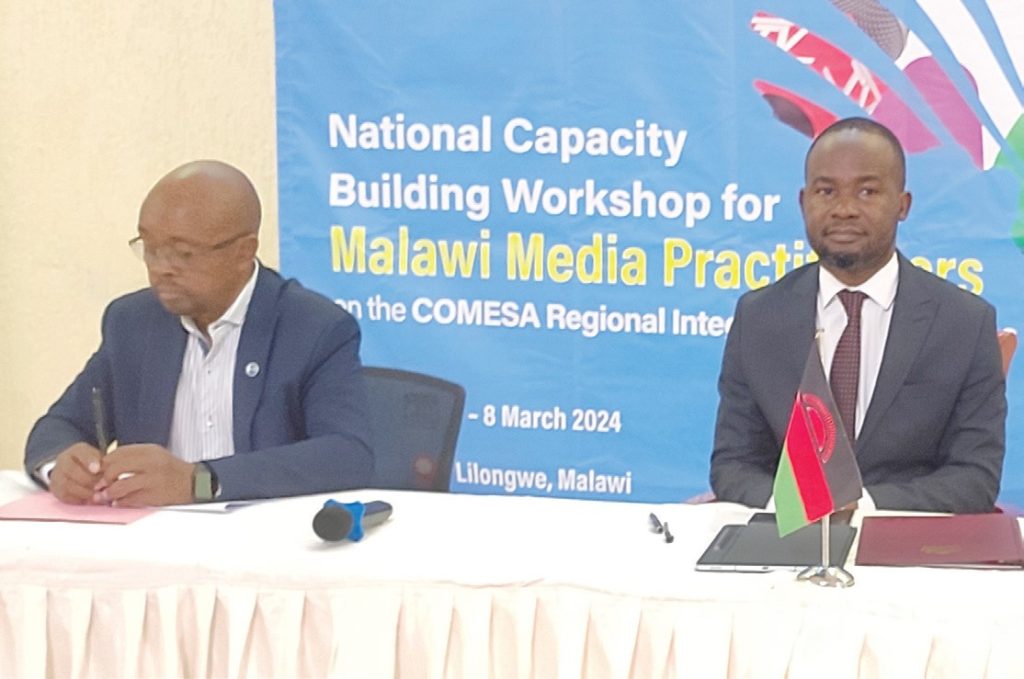Ministry, Comesa vow to support local traders
Minister of Trade and Industry Sosten Gwengwe said yesterday his ministry will continue to support the local industry to benefit from the opportunities offered by the 21-member Comesa trade bloc.
He said this in Lilongwe where the Common Market for East and Southern Africa (Comesa) is holding a two-day workshop to enlighten the media on the operations of the regional trade bloc which has 640 million people, a gross domestic product of $1 trillion and a global export/import trade in goods worth $383 billion.

Speaking in an interview, Gwengwe said the government will work to help local businesses and manufacturers to diversify into regional and international markets by creating fairer tax regimes that help them compete locally.
He said: “Our philosophy is that we have to help companies operating locally such as Castel Malawi to dominate the local market so that they can use that as a springboard to penetrate regional and international markets and remain competitive while there.”
Gwengwe said such as competitive edge will move them into the export market and penetrate the Comesa market.
The remarks come a few weeks after Minister of Finance and Economic Affairs Simplex Chithyola-Banda announced that government would reduce excise tax on clear beer made from sorghum and maize from 40 percent to 20 percent to promote the use of locally sourced raw materials for production.
Speaking earlier, Comesa head of corporate communications Mwangi Ganguka said the regional bloc will continue to support local initiatives to promote economic transformation and boost Malawi’s chances of penetrating the local market.
He said: “We have been an important partner to Malawi. We helped finance the Mchinji-Mwami Border between Malawi and Zambia.
“We have leather processing plants that are supporting the development of the leather industry, among other projects.”
Aside from the Mchinji-Mwami One-Stop Border, Comesa is also supporting initiatives to boost productivity in the agriculture sector which employs more than 80 percent of the local labour force and accounts for nine out of Malawi’s top 10 foreign exchange earners.
Comesa senior private sector development officer Esther Mwimba said the regional bloc has ongoing initiatives locally to enhance the production of livestock and fisheries sectors to increase the productivity and resilience of local livestock production systems.
She said: “We are also working to improve the access to markets, services and value addition.
“These are some projects that are running in member countries, including Malawi to ensure that farmers have access to international markets.”
The regional trade bloc is running the Regional Enterprise Competitiveness and Access to Markets Programme and LivesIIAfrica which supports member States to enhance existing value chains and add value to their products.
Recent data showed that revenues at the Mchinji-Mwami Border went up 55 percent since the Malawi Revenue Authority commissioned the One Stop Border Post.





